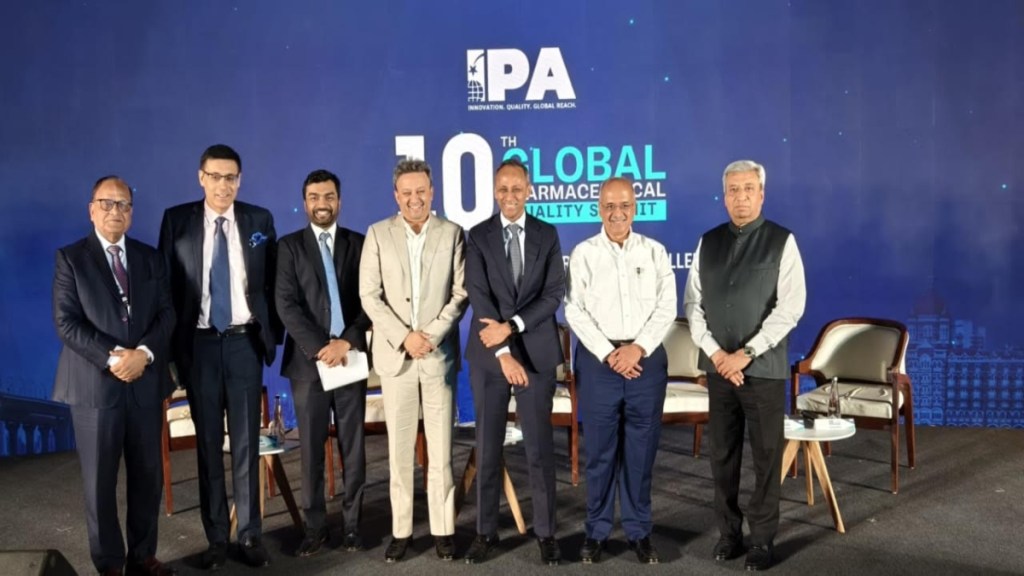It is better to be vague and accurate than be precise and wrong. This gyan gathered eons ago by this writer from a highly revered central banker seems to hold true more today for the pharmaceutical industry than for the financial sector. Soothsaying about the global prospects in uncertain times can be dicey and the captains of the Indian pharmaceutical industry seem to know this only too well.
It may be beneficial to advocate the gains from sustained release of medicines but then rather detrimental when there is periodic and uncertain dose infusion of challenges to contend with on policy changes in key global markets (read: the tariff threats from the US or the global trend towards hyper-nationalism) or the news reports of deceit by unscrupulous players in some underdeveloped markets, studies that throw in concerns on adverse events and their linkages to different geographies and to top it all, the everchanging technologies with new imperatives on designing drugs in a digitised world.
Apparently, undeterred by any of these, Indian pharmaceutical industry’s titans exuded guts & gumption for growth as they took to sharing their insights at the 10th Global Pharmaceutical Quality Summit in Mumbai centred around the theme of ‘Navigating the next decade for global excellence.’
It was a delightful sight for journalists to see pharma industry leaders gathered to brainstorm and swap ideas on the way ahead and to reflect on the journey thus far. There was Dilip Shanghvi, chairman and managing director, Sun Pharmaceutical Industries, Pankaj R Patel, chairman, Zydus Lifesciences, his son and managing director in the company Sharvil P Patel, Nilesh D Gupta, managing director, Lupin and Umang Vohra, managing director and global CEO, Cipla.
The future seems inevitably aligned to pursuit of innovation, complex generics, tapping newer opportunities in newer therapies, newer technologies while leveraging the strengths in cost competitiveness.
The Affordability Angle
Over the next 10 years, Pankaj Patel saw opportunities for Indian companies in leveraging their strengths in the ability to deliver products at prices that are affordable by a larger population. While there are today, newer technologies and the newer ways of treatment, including biological drugs, gene therapy for rare diseases, these come at a high price and it was here that Indian companies could see opportunity and offer lower cost solutions. “At the current prices, two-thirds of the world cannot afford them. It is here that India has an important role to play as we did once upon a time in small molecules,” he said.
Count on collaboration
“I believe, the pharma industry will evolve, improve, grow and in the process adopt different routes, including distributed manufacturing and also seek to secure supply chains. There has to be a global collaboration between countries to secure the supply chain,” he felt. To Patel, India has been a shining example of a country that has been consistent in maintaining supplies to the world market at affordable prices.
The Innovation Imperative
Dilip Shanghvi underlined the importance of innovation. “It is important to focus on innovation – both in newer technologies (largely biology-related) and existing technologies (linked to traditional strengths in synthetic chemistry) and leverage the opportunities to bring newer products to market.” China, he said, had become “extremely successful in it with last year more than 30 per cent of the products licensed globally researched out of China.” And, therefore, the key question to him was about: How Indian companies could participate in this whole process.
To Nilesh Gupta, it was a clear future aligned to differentiated products: “If you do not do complex generics, the generics market is just not going to grow.” All of it, while manufacturing in much more efficient manner.
Chemistry to Biology
Backed by the strengths India has had the efficient delivery of medicines and healthcare services, Umang Vohra from Cipla opted to look at some imaginable news headlines 10 years from now that spoke of multitude of Indian companies making an impact globally in the newer therapy areas and leveraging newer technologies. For example, he reminded: “We already have couple of companies in India into CAR-T cell-therapy (for instance, Immuneel Therapeutics, co-founded by Biocon founder Kiran Mazumdar-Shaw. It is the transformational cell-based immunotherapy for cancer patients in India). Other than examples from Sun Pharma and Zydus Lifesciences. He said, “imagine such endeavours from 10 or 15 Indian companies.”
The track record thus far
Much of the confidence emanates from the track record that leading Indian companies have demonstrated in the past. According to a new report brought out by McKinsey and released at the IPA conference, as of 2024, India has emerged as the world’s largest supplier of generic drugs, accounting for 20 per cent of global volumes, including 40 per cent of generics demand in the United States and 25 per cent of all medicine in the United Kingdom. The report says, the country is now the third largest global exporter of pharmaceuticals by volume and ranks 11th by value. Indian pharmaceuticals, it says, has an export growth rate of 9 per cent out pacing the global average of 5 per cent.
The Indian pharma leaders seem to be hoping the journey thus far and the growth numbers achieved may be more eloquent than verbiage visualising the future.








